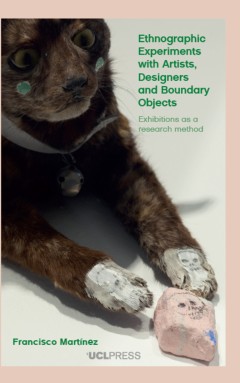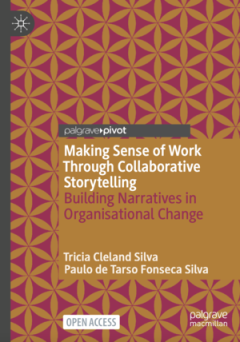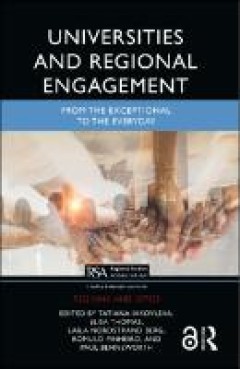Filter by

Harnessing public research for innovation in the 21st century: an internation…
Universities and public research institutes play a key role in the innovation ecosystem. Many countries have implemented national strategies to support the commercialization of knowledge produced by public institutions, to help take their innovations and scientific breakthroughs to market and ultimately boost economic growth. Research bodies themselves have also introduced practices to support …
- Edition
- -
- ISBN/ISSN
- 9781108842792
- Collation
- 544 p
- Series Title
- Intellectual property, innovation and economic development
- Call Number
- 607.2 ARU h

Ethnographic experiments with artists, designers and boundary objects : exhib…
Ethnographic Experiments with Artists, Designers and Boundary Objects is a lively investigation into anthropological practice. Richly illustrated, it invites the reader to reflect on the skills of collaboration and experimentation in fieldwork and in gallery curation, thereby expanding our modes of knowledge production. At the heart of this study are the possibilities for transdisciplinary coll…
- Edition
- -
- ISBN/ISSN
- 9781800081086
- Collation
- xiii, 201 p. ill;
- Series Title
- -
- Call Number
- 708 ETH F

Making sense of work through collaborative storytelling
Collective sense making starts with individual stories. Stories influence how we construct our sense of self in relation to others and our social environment, especially within the world of work The stories we tell ourselves at work, particularly during times of change, impact our relationships and the collaboration with those who are engaged in the same work activities. Stories that we take…
- Edition
- -
- ISBN/ISSN
- 9783030894467
- Collation
- 119p.
- Series Title
- -
- Call Number
- 658.02 SIL m

Universities and regional engagement : from the exceptional to the everyday
The study of universities’ role in regional engagement has traditionally been focusing on exceptional cases. This book presents a reconceptualision which embraces its underlying complexity, and proposes a roadmap for a renewed research agenda. Starting from the grassroots level of universities’ "everyday" engagements, the book delves into the manifold ways in which university knowledge agen…
- Edition
- -
- ISBN/ISSN
- 9781003150299
- Collation
- xiv, 246 p. : ill.
- Series Title
- -
- Call Number
- 378.103 IAK u

The International Turn in American Studies
The volume is a contribution to the ongoing debate on the internationalization of American Studies. The essays by European, American and Latin American scholars provide critical evaluations of a wide range of concepts, including trans-national and post-national, international, trans-atlantic, trans-pacific, as well as hemispheric, inter-American and comparative American studies. Combining theor…
- Edition
- -
- ISBN/ISSN
- 9783653036572
- Collation
- 372 p. : ill
- Series Title
- -
- Call Number
- 973.071 MES t
 Computer Science, Information & General Works
Computer Science, Information & General Works  Philosophy & Psychology
Philosophy & Psychology  Religion
Religion  Social Sciences
Social Sciences  Language
Language  Pure Science
Pure Science  Applied Sciences
Applied Sciences  Art & Recreation
Art & Recreation  Literature
Literature  History & Geography
History & Geography